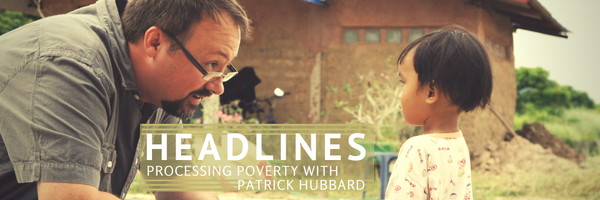
A recent Christianity Today article on the impact Christian organizations are having on child sex trafficking in Cambodia affirmed our approach to combating sex trafficking in Southeast Asia. First, I want to be sure to give credit to IJM and AIM for the great work they have been doing to help the government of Cambodia improve their justice system with an emphasis on arresting and prosecuting child sex traffickers. This is important and multifaceted work. However, a few items in the article stood out to me in particular, and I would like to highlight them in this post.
With regard to the perception Westerners have about sex trafficking, Andy Blalock with AIM is quoted, saying, “They think all trafficking is girls chained up. It’s more the invisible chains and family pressure.” The author of the article notes that many girls in Cambodia enter sex work with consent and even the encouragement of their family and friends. I can also attest to this in our work there. We have found this to be the case in other parts of Southeast Asia and South America. I suspect this is the reality throughout the developing world as another unfortunate consequence of poverty. Families are hungry and incapable of meeting even their basic needs for survival, and this desperation leads vulnerable women and children into the sex industry.
This is why I have maintained that rescue efforts, while important and necessary, will never provide a long-term solution. As Helen Sworn stated in the article, “Rescue is a one-off event. You can rescue 20 girls from a brothel, and they’ll get 20 more.” As long as there is an abundance of desperately poor women and children available traffickers will have no problem finding replacements for rescued girls.
This is why we take a different approach with Living Bread Ministries.
The focus of Living Bread is comprehensive church planting among the global poor. By focusing on the poor we are in a position to have a direct impact on the issue of human trafficking. Our approach to church planting involves equipping our indigenous church plants to do many of programs that are traditionally left to Western NGOs. This means the local churches we help establish are meeting basic needs for food, clothing, medicine, and education. By addressing these basic human needs in the context of the local church we can help to alleviate the desperation that leads so many to turn to the sex industry.
A less realized theological issue can also be at work in this situation. Church planting among the poor in Cambodia deals with the problem of karma. Buddhists in Southeast Asia strongly believe in karma. As a result, it is assumed that women and children who end up in the sex industry are paying for their past wrong deeds. This has a crushing effect on the victims. In many cases, they are unwilling to do anything to better their circumstances as they believe that they are doomed to repeat them until they have satisfied karma. Likewise, others are unwilling to help victims because they do not wish to work against karma and in so doing doom themselves. Leading people to hope in Christ frees them from this type of bondage and sets the stage for them to begin working toward a better life.
Pursuing a better life then requires a way to deal with the root problem of ongoing poverty, beyond the sex industry. In order to facilitate this, a year ago we began working with Freegrance Products. As part of our comprehensive approach our church plants work directly with women who are either currently in the sex industry or are vulnerable to entering it. We teach these women to make products like natural soaps and jewelry. We also help them start their own businesses. This work is done by local church leaders and is used as a means of evangelism and relationship building.
Once their businesses are functional Freegrance Products begins buying their products and bringing them to customers in the USA and Canada. This project adds a development arm to our comprehensive approach that deals with the underlying issue of poverty. While IJM and AIM focus on the justice systems in countries, we believe our approach is equally important. When you invest in our work you help provide for physical and spiritual needs among women and children while also helping them to secure a future free of the sex industry.
For information on ways you can partner with us, and by doing so partner with the poor we serve, visit our giving page: LivingBread.org/give
Patrick Hubbard has an extensive business and ministry background. He worked in the hospitality industry as a General Manager and as a Regional Manager. Along with his wife Bárbara, he is part owner ofFreegrance Products LLC, a social enterprise seeking to empower women to escape poverty and avoid human trafficking. Patrick and Bárbara are also the founders of Living Bread Ministries where they have committed over thirteen years to comprehensive ministry among the global poor. He has also served as a staff member of a local church. Patrick holds a BS in Religious Studies and a MA in Global Studies from Liberty University. He is currently pursuing a MBA from Old Dominion University.
has an extensive business and ministry background. He worked in the hospitality industry as a General Manager and as a Regional Manager. Along with his wife Bárbara, he is part owner ofFreegrance Products LLC, a social enterprise seeking to empower women to escape poverty and avoid human trafficking. Patrick and Bárbara are also the founders of Living Bread Ministries where they have committed over thirteen years to comprehensive ministry among the global poor. He has also served as a staff member of a local church. Patrick holds a BS in Religious Studies and a MA in Global Studies from Liberty University. He is currently pursuing a MBA from Old Dominion University.

